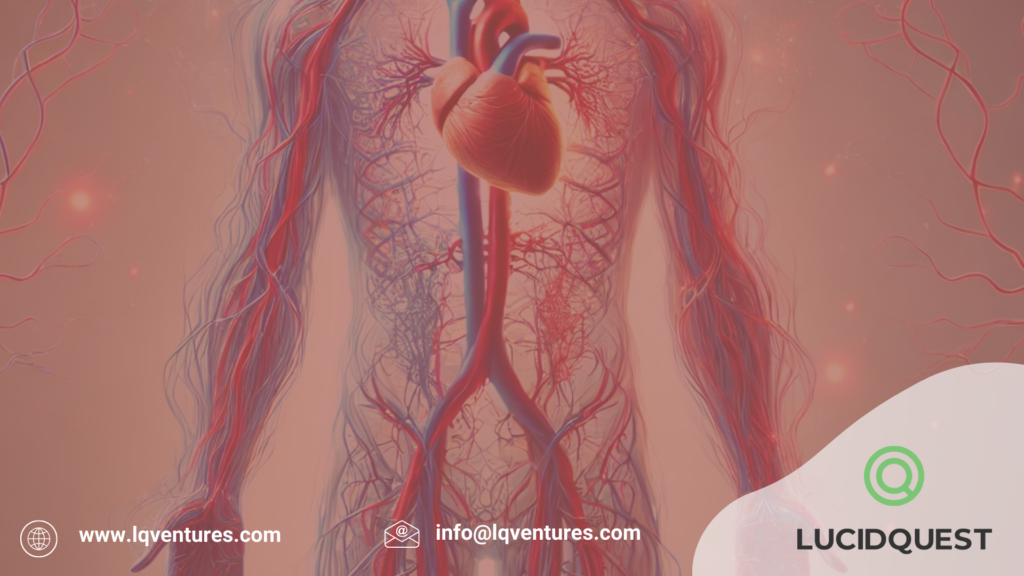Watch Our Video Summary Capturing Cardiovascular News from the Last Two Weeks
From Neurescue’s CE Mark for non-shockable cardiac arrest and Medtronic’s Elevate-HFpEF trial to Cedars-Sinai’s US$26M study in bicuspid aortic valves—this week’s signals are robust. We span cardiac arrest, heart failure, valvular disease, and AI-driven risk prediction, with regulatory milestones and first-in-human mitral repair breakthroughs, underscoring clinical innovation and improved patient outcomes.
Top Stories Covered in This Video
🎯 NEURESCUE® CE Mark for non-shockable cardiac arrest [1] [EU • 09 Sep 2025]
Context: CE Mark under MDR after ~6-month review; device inflates aortic balloon to redirect flow during CPR; prior FDA 510(k) for hemorrhage control.
Key point: First approved device to treat non-shockable cardiac arrest; targets majority of arrest presentations (endpoint not specified).
Implication: May influence prescriber choice and payer reviews pending full data.
⚡ Medtronic starts pivotal ELEVATE-HFpEF pacing trial [2] [EU • 15 Sep 2025]
Context: RCT, double-blind, global; up to 700 patients; conduction system pacing vs backup pacing; 1-year follow-up.
Key point: Tests personalized elevated pacing rates to improve symptoms/outcomes in HFpEF (endpoint not specified).
Implication: May influence prescriber choice and payer reviews pending full data.
🧩 PCORI funds TAVI vs SAVR in bicuspid AS (Cedars-Sinai) [3] [US • 16 Sep 2025]
Context: ~US$26M, 6.5-year multicentre RCT; patients ≥50 with bicuspid aortic stenosis randomized to TAVI or SAVR.
Key point: Addresses evidence gap comparing modern TAVI vs surgery specifically in bicuspid anatomy.
Implication: Could inform practice and payer discussions; interpretation depends on study design and confounding control.
🫀 First-in-human Sutra Hemi-valve for MR repair [4] [New Zealand • 16 Sep 2025]
https://cardiovascularnews.com/first-patient-receives-sutra-hemi-valve-mitral-repair-system/
Context: 83-year-old high-risk patient; transfemoral, transseptal; MR reduced from severe (4+) to trace–mild; discharge on day 3.
Key point: Early feasibility shows procedural success in anatomies unsuitable for surgery or TEER (n=1).
Implication: Signals pipeline investment and modality expansion.
🩺 Mammogram-based AI predicts CVD risk in women [5] [AU • 16 Sep 2025]
https://www.eurekalert.org/news-releases/1097959
Context: Deep learning on >49k routine mammograms; compared to traditional risk models; Heart (BCS) publication.
Key point: Algorithm using mammographic features + age achieved comparable discrimination to conventional calculators (specific metrics not detailed here).
Implication: Could inform practice and payer discussions; interpretation depends on study design and confounding control.
🫁 SYMPHONY-PE pivotal shows efficacy/efficiency & safety [6] [US • 18 Sep 2025]
https://cardiovascularnews.com/symphony-pe-trial-demonstrates-positive-efficacy-efficiency-and-safety-results/
Context: IDE trial; 109 intermediate-risk PE patients; 17 US sites; late-breaker at PERT 2025; paper in Circulation: Cardiovascular Interventions.
Key point: Met primary endpoints; improved RV/LV ratio and PAP; no device-related SAE; no 30-day mortality reported.
Implication: May influence prescriber choice and payer reviews pending full data.
💉 Zalunfiban (DisaggproT) hits Phase 3 topline in STEMI [7] [23 Sep 2025]
Context: CeleBrate trial; 2,467 STEMI patients; pre-hospital, single SC dose vs placebo; US/Canada/Mexico/Europe.
Key point: Positive primary efficacy and safety; detailed data slated for AHA late-breaker (endpoint not specified here).
Implication: May influence prescriber choice and payer reviews pending full data.
🧠 AI-echo tool flags cardiac amyloidosis earlier [8] [23 Sep 2025]
Context: Ultromics EchoGo® Amyloidosis modeled across 4,800+ cases (US/UK); abstract at ASE 2025; FDA-cleared platform background.
Key point: Improved referral accuracy vs wall-thickness criteria; multicenter validation supports scalability (specific metrics not detailed here).
Implication: Could inform practice and payer discussions; interpretation depends on study design and confounding control.
Why it matters
- Non-shockable arrest finally has an approved device pathway in the EU, potentially shifting resuscitation algorithms.
- Personalized conduction system pacing could open a new HFpEF treatment class if benefits hold.
- A PCORI-backed bicuspid AS RCT may clarify TAVI vs SAVR trade-offs in a common congenital anatomy.
- Rapid, less invasive MR repair options expand for high-risk, TEER-ineligible patients.
- Catheter-based PE thrombectomy evidence base is strengthening, focusing on safety and hemodynamics.
📢 Stay Ahead in Cardiovascular research!
✅ Make sure to like, share, and subscribe to our YouTube channel to catch all future highlights. You can also check out our weekly newsletters for more in-depth stories.
✅ Contact LucidQuest at info@lqventures.com for strategic guidance on cardiovascular innovations and heart health research.
FAQ
What makes NEURESCUE® distinct from defibrillation for cardiac arrest?
NEURESCUE® is designed for non-shockable rhythms, redirecting blood to heart/brain via temporary aortic occlusion during CPR—distinct from defibrillators, which treat shockable rhythms [1].
How will ELEVATE-HFpEF change pacemaker use?
It tests conduction system pacing with personalized higher rates in HFpEF patients without current pacing indications; outcomes could support a new label if positive (endpoint not specified) [2].
Why compare TAVI and SAVR specifically in bicuspid valves?
Bicuspid anatomy is common yet underrepresented in prior trials; this RCT aims to provide head-to-head outcomes to guide treatment in patients ≥50 years [3].
Is the Sutra Hemi-valve an alternative to TEER?
Early FIH data suggest feasibility in anatomies unsuitable for surgery or TEER; broader safety/efficacy will require more patients [4].
What’s new about pre-hospital STEMI therapy with zalunfiban?
A subcutaneous GPIIb/IIIa designed for rapid pre-hospital use met Phase 3 primary endpoints; full data are pending a late-breaker presentation [7].
Entities / Keywords
Neurescue (NEURESCUE®); Medtronic (ELEVATE-HFpEF; conduction system pacing); Cedars-Sinai / PCORI (bicuspid AS RCT; TAVI vs SAVR); Sutra Medical (Sutra Hemi-valve; MR repair; TEER-ineligible); Imperative Care (SYMPHONY-PE; large-bore thrombectomy); CeleCor Therapeutics (zalunfiban; DisaggproT; GPIIb/IIIa; STEMI); Ultromics (EchoGo® Amyloidosis; AI echocardiography; cardiac amyloidosis).
References
https://cardiovascularnews.com/first-patient-receives-sutra-hemi-valve-mitral-repair-system/
